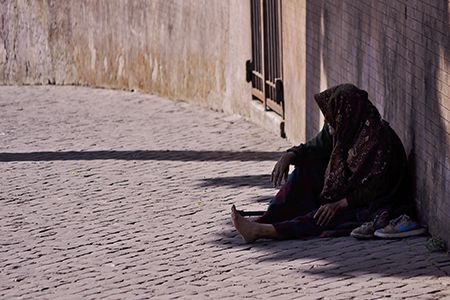 Proverbs 31:10-13, 19-20, 30-31
Proverbs 31:10-13, 19-20, 30-31
 1 Thessalonians 5:1-6
1 Thessalonians 5:1-6
 Matthew 25:14-30
Matthew 25:14-30
“A capable wife, who can find her? … She does him good, and not harm, all the days of her life” (Proverbs 31:10, 12). Is the author promoting the image of a subservient female serving her husband “all the days of her life”?!? Equally perplexing is the Gospel reading where Matthew recounts a parable of Jesus that seems to suggest that the rich will become richer and the poor will become poorer!
At first glance, this week’s readings seem to be perpetuating deep-rooted social injustices against women and the poor. There’s no doubt that these passages are shocking but aren’t most things that came out of Jesus’ mouth equally thought-provoking, if not more? When we put on the lens of Jesus’ teachings about love, service, and the Kingdom of God, we are empowered to understand these narratives more thoroughly. The “capable wife” in Proverbs can be interpreted as the Church and her husband, Jesus. In fact, this passage sheds light on the mission of the Church. Central to the Catholic social teaching is the preferential option for the poor. The canon law states that “The Christian faithful are also obliged to promote social justice and, mindful of the precept of the Lord, to assist the poor”. Hence, the “capable wife”, or followers of Christ, “opens her hand to the poor and reaches out her hands to the needy” (Prov 31:20). Pope Benedict XVI affirms the centrality of social justice in “Caritas in Veritate”:
(Caritas in Veritate n.6 as quoted in “Catholic Social Teaching on Poverty, an Option for the Poor, and the Common Good”, USCCB.org)
Indeed, by virtue of our baptismal dignity, we have been anointed to “bring good news to the poor” and sent to “proclaim release to the captives and recovery of sight to the blind, to let the oppressed go free, to proclaim the year of the Lord’s favour” (Lk 4:18-20).
What God has gifted each one of us is sufficient to fulfill our mission as Catholic Christians in the service of our fellow sisters and brothers. Whether we receive one, two, or five “talents”, we are called to bear fruits. Whatever talents we may have, we are reminded to use them in serving others. What if I only receive “one talent”? In truth, God can even use our perceived weaknesses to build a community of faith, hope, and love. It is through such diversity and openness that we may support each other along the journey as companions in faith. Jean Vanier reminds us that “one of the marvelous things about community is that it enables us to welcome and help people in a way we couldn't as individuals. When we pool our strength and share the work and responsibility, we can welcome many people, even those in deep distress, and perhaps help them find self-confidence and inner healing” (Community and Growth). When the Church, meaning all of us, contribute to the greater good, we build a more hopeful and beautiful world in which everyone may “enter the joy of [our] Master” (Mt 25:23).
